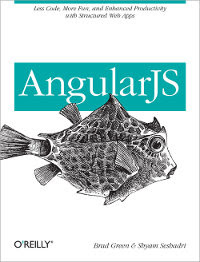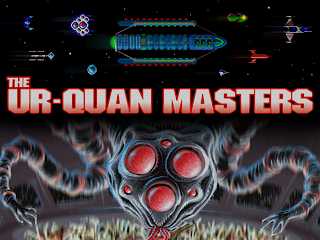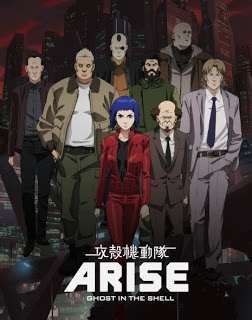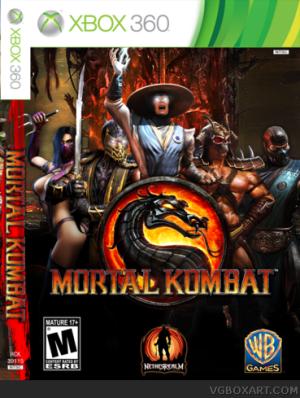 Today was my last day at the large corporation I was employed at. I quit for several reasons, but mainly because the project I was working on wasn't challenging at all. So one has to wonder: how did I get to be bored at work when only two years ago I was so happy to be hired by one of the best employers in Bucharest to work on an exciting new project?
Today was my last day at the large corporation I was employed at. I quit for several reasons, but mainly because the project I was working on wasn't challenging at all. So one has to wonder: how did I get to be bored at work when only two years ago I was so happy to be hired by one of the best employers in Bucharest to work on an exciting new project? And the answer is : misrepresentation. I've titled the post thus because I sincerely think very few people, if any, wanted to harm me or lie to me or take advantage of me and yet the thing I was hired for changed and shifted until I became annoying for proposing ways of improving the project and asking for work. Let me take you from the beginning and you will see what I mean.
At the end of March 2011 I was working at a medium sized company, a place where there were some interesting projects, but the work ethic and methodology was really lacking. I had been working there for about two years and I was starting to get annoyed for not getting any recognition in the face of obvious personal improvement. And in my vulnerable state I was head-hunted by a human resources person from this major American corporation who wanted me to work on a project for them. I said I will give it a try, personally believing that I will either not like the place, not like the money or, even more probable, they will not think me worthy of the job. See where I am getting with this? I was already sold on the concept of a new job there and I didn't want to get disappointed, so I was playing down my chances. It seems that, after one telephonic interview, a series of six consecutive face to face interviews and another one with the head of the company, I was good enough for them. All I had to do was negotiate the wage. I was rather disappointed with the way the then current place of employment was handling salary increases (I've gotten only one raise, 2.25% in size, in two years) so I had a sum in mind that I would consider the minimum I would get in the new place of employment. You see, I am not a very good negotiator, I hate haggling, so I just drew a line in the sand and said that no one will push me over it. I was so serious when I went to talk to them... they proposed a sum that was more than 10% higher than what I was willing to fight for. Surprised, I accepted. Now all I had to do is wait for a call to tell me how we would proceed. It was near my birthday and I thought "Wow! What a nice present!".
At this point I'd had contact with the
HR girl, who was very nice, been interviewed by a lot of people, both technical and not, also very nice, and even passed by the head honcho of the company who played a little game with me when we met, by pretending to be a very arrogant and annoying person while the top
HR specialist was watching me with a stern expression. I am kind of proud of myself to have seen through their ruse, but I think they did try too hard. No one can be such an idiot to consider refactoring useless because you write good code from the beginning, right? Anyway, the guy who was supposed to be manager gave me a call the first week, told me there was some restructuring going on in the company, that we were still on and that I had to wait. He was nice too. He called me every week for about three months to tell me we were still on, while I was sweating bullets because I had already announced in my company that I was going to leave so that they can prepare for my absence, and they were starting to look at me suspiciously: I wasn't going anywhere. At the time my soon to be manager said he was going in holiday and that another guy was going to call me. No one did for more than two weeks. So I called them!
Now, you see, the
HR girl was genuinely believing that she would offer me a better job and my prospective manager was also convinced he wanted me in his team and that we would work great together, they all wanted was best for them and me! So imagine my shock when I called and the new guy told me "Oh, you still wanted to get hired? I had understood that you refused the job". No, you moron, I did not. I politely asked for more information only to find out that they had no more positions as full employees, a limitation that had come from the US corporate headquarters, and that they could only offer me a consultancy job. Devastated, I asked what that meant. It meant I didn't get company stock as a bonus, but I was only paid the sum we had already negotiated. I didn't know about employee benefits when I got the job and I didn't really care for them, so I said yes. It was going to be a temporary measure until more hiring positions were opened.
The company had gone through a "reorg" (I was to meet with a lot of new acronyms and made up words in the new job, much to my chagrin - this particular one meant "reorganizing") and I was not to work under the guy who talked to me week to week, but under the new guy, the one that didn't know if I wanted the job or not. But he seemed genuinely nice and motivated, very enthusiastic about the new project, an administration web
UI made in ASP.Net MVC. He asked me if I knew anything about the project. I said no. Why would I care about a project if I don't know if I would be hired or not. He seemed disappointed, but proceeded to explain what the project did and how great it was going to be, as it was meant to replace the old thing, made in ASP.Net in Visual Basic... by monkeys.
You see, he had the best of intentions as well, he was technical, willing to create something exciting and challenging and convinced that I would fit in their team and help with this new project made with new technology. When I finally got my hands on code and started actually working, the project was dead in the water. They had decided instead (and by they I mean some schmuck in US, not the people actually working on it) to just refactor the old admin and continue on. Different from what you may think, I was actually excited. In my head I had this tool that I would be working on to transform all VB.Net 2.0 code into C#.Net 4.0, become the hero of all, and create a formal framework of refactoring code from one language to the other. (If you don't know the terms here, just imagine I wanted to replace wood with stone so that the big bad wolf would not blow the house in). Alas, it was not to be. "Too risky" they call it when they feel afraid. I was yet to understand that in a large corporation responsibility dilutes until it becomes nothing. The only tangible thing becomes blame, which replaces responsibility and exterminates creativity and stifles initiative.
You see, like all the actors in this play, I too had good intentions. The first code I wrote was to fix some bugs that I had noticed in a bit of code related to online shopping. The customers had also noticed this bug and had found complex methods to get around it. While my fix solved the initial problem, it also broke any such method and, as I was a rookie in the formal way of doing things in the new company, the fix wasn't even bug free. From that time I was labelled "dangerous", from the initial problems with understanding the project and also my vocal way of expressing what I thought of leaving a project unstructured and buggy. Well, in hindsight, I have to agree that I wouldn't have felt a lot of love for someone calling me an idiot. Even if I were... especially if I were. Anyway, from this little incident you might have already guessed that a complete overhaul of the code (wood to stone) was out of the question. The powers that be had decided that starship Enterprise was to stay home, no bold missions for it.
I could go on with details, but you are probably already bored. Enough to say that I had my first real experience with
Scrum there, a way in which all people had a role, each development cycle had phases that were followed in order and documented along the way, a system which, in time, would collect enough statistical data about the team so that it could predict development speed.
All it needed for that was a team that would remain constant. Due to repeated reorg-ing my team had never the same structure for more than two or three months. The general (not per project, overall) company policy would shift radically, often completely in the opposite direction, every six months at most. Plans were set in motion, then discarded before reaching anywhere; performance metrics were created to measure project progress, only to be changed at the next strategic hiccup. It was clear that this was going nowhere like that and, instead of changing their way of constantly shivering in fear, they decided to close the project.Only you see, the project earned money. Not a lot, but enough to count. There are tens of thousands of people paying for the service and hosting sites on it. You can't shut down a project like this. So they invented yet another expression "sustainability mode", to express the way they intended to zombify the project that they had advertised to clients and developers alike like the next cool thing that would solve all problems. I felt cheated and I could only imagine how clients that paid money instead of receiving them felt. There is an expression "the way to Hell is paved with good intentions". All the people - there were 70 developers and testers on the project and God knows how many managers and support staff - had the best intentions. We achieved a highway to Hell. Oh, and by the way, I never really got hired as a full employee. I remained "temporary" a consultant for the full length of my work there.
So what is the outcome of all of this?
Two years of my life are gone. I have learned some things, but in the meantime lost a lot of my initial enthusiasm towards development. I stopped reading technical blogs and only spent my days thinking of the tasks ahead, like a good little robot. I've earned a lot more money, many of which I saved in the bank. I gained ten kilos (that's about 20 pounds, for you metrically challenged folk). I almost made my wife divorce me once, but we got over it. I've made some good friends. I learned to play chess a little better. I am not yet sure if the good balances the bad. Now I have found a new job opportunity, one that is even better paid. I only hope it will not be equally as depressing.
Was I wrong to be so optimistic about getting hired, as I am now, I guess, because it led to disappointment? Better to have loved and lost, I say. Were the people that misrepresented themselves and the project I was to work on wrong? I don't think so, I think they were equally optimistic and got equally disappointed. Was it wrong to have better expectations from the world? Prepare for the worst, but expect the best, I say. So yet again, I can't really blame anyone in the Romanian office and it is difficult to point the finger at the guys in the US as well. And yet, this is the result...
 When I first opened the ASP.NET MVC 4 Recipes, by John Ciliberti I was amazed. It seemed to transcend the reference book and go into a sort of interactive path thing. You know interactive books, where you read the book and at certain points you get to choose what the characters do by going to read one page or another? This is what Recipes seemed to be. You get to a point where the author tells you which chapters to read and in which order based on your role in the organization. That is and will remain a wonderful concept and I would see more books steal it for themselves. However, the actual content of the book did not feel as great as its presentation, I am afraid to say. This is not to mean it is a bad book, only that I expected a lot more from it from reading its "mission statement". The book is Microsoft centric, obviously, but it says very clear that it will solve problems with Microsoft products as a rule. For example it favours KnockoutJS as a JavaScript framework. But that's not really annoying, though.
When I first opened the ASP.NET MVC 4 Recipes, by John Ciliberti I was amazed. It seemed to transcend the reference book and go into a sort of interactive path thing. You know interactive books, where you read the book and at certain points you get to choose what the characters do by going to read one page or another? This is what Recipes seemed to be. You get to a point where the author tells you which chapters to read and in which order based on your role in the organization. That is and will remain a wonderful concept and I would see more books steal it for themselves. However, the actual content of the book did not feel as great as its presentation, I am afraid to say. This is not to mean it is a bad book, only that I expected a lot more from it from reading its "mission statement". The book is Microsoft centric, obviously, but it says very clear that it will solve problems with Microsoft products as a rule. For example it favours KnockoutJS as a JavaScript framework. But that's not really annoying, though. 










